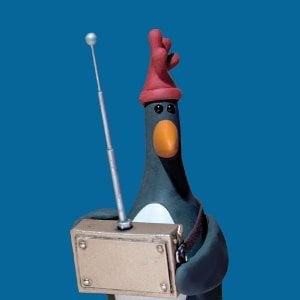I often hear, “You should never cheap out on a good office chair, shoes, underpants, backpack etc…” but what are some items that you would feel OK to cheap out on?
This can by anything from items such as: expensive clothing brands to general groceries.


I realise it’s the opposite of what you’re asking, but:
Honestly it doesn’t really matter what it is, if it’s something you are going to rely on, don’t cheap out on it if you can afford not to.
Pretty much every non-consumable product category has a low end of cheap shit that is not worth anyone’s money.
Also, and this only really applies to big electrical items: if you can be bothered, find someone who repairs the kind of thing you’re trying to buy and ask them what the best made brands and models are. They are the people that will know better than anyone else what is built to last and what is built to be replaced when the warranty expires.
But that’s the whole point of this post. Pointing out situations where this logic doesn’t hold up. And there are for sure situations where it doesn’t. The expensive version of some things really aren’t worth the extra money at all.
There’s a price to quality/value/utility bell curve to be identified for everything basically and even if some expensive (for example 3x priced) thing is higher quality than the cheap version that costs 1/3 the price, it very well may not at all by any measure be 3x as good/reliable/etc.
Oh yeah, I’m not saying always go for the high end, mid range is often perfectly fine. I’ll highlight I’m talking about non-consumable products which you will rely on.
If it’s something consumable, the low-mid range often has minimal practical variation due to market forces. If it’s not something you’re going to rely on, you don’t need to care too much if it’s gonna break itself or whatever you’re using it for.
Excuse the tautology, but anything you’re relying on, needs to be reliable. If the low end is reliable enough for that, market forces unfortunately dictate that a worse version must be made for cheaper, because that it-doesn’t-need-to-be-reliable demographic is not currently being saturated.
It’s kinda away from my original point, but it’s also very important—if we can afford it, we should be buying the longest lasting versions of everything we need, we generate an unreasonable amount of waste currently due to the proliferation of planned obsolescence and disposable consumerism. It’s not a bargain in the long term if we turn the planet into an oven.
The whole point is that “value for money” is not constant across products or kinds of products. The post is asking to optimize value while minimizing cost. It is a reasonable enough question to have legitimate answers.
I don’t think I got my point across clearly then, apologies:
I was answering the question “what products would you be okay cheaping out on?” with basically “out of non-consumables, only things I don’t want to rely on if I can afford it”. For me “cheaping out” means going for the low-end, cheapest option.
I then tried to explain why, that in a free-market economy, market forces ensure the low end will pretty much always be borderline-useless waste and therefore IMO not worth any amount of money for anyone expecting something reliable. This is not unique to a specific set of products, this applies to everything that has a choice between different models and brands of the same product, because nearly always, the cheaper and worse option is rewarded by increased profit margins and/or sales volume and reduced sales for competitors. This is because humans psychologically love the feeling of getting something for less even if what they’re getting is worse, that feeling can short-cut a load of our usual reasoning and manipulate how we spend our money.
Back to my opinion again though: I personally can’t think of anything really that I’d want to buy but not want to also be reliable, where the reliable option wasn’t prohibitively expensive—so, I can’t really give a more specific list of items. Tbh, unless I had an urgent need for something and lacked the funds for something that would last, I think I would most likely wait rather than cheap out.
edit: typo